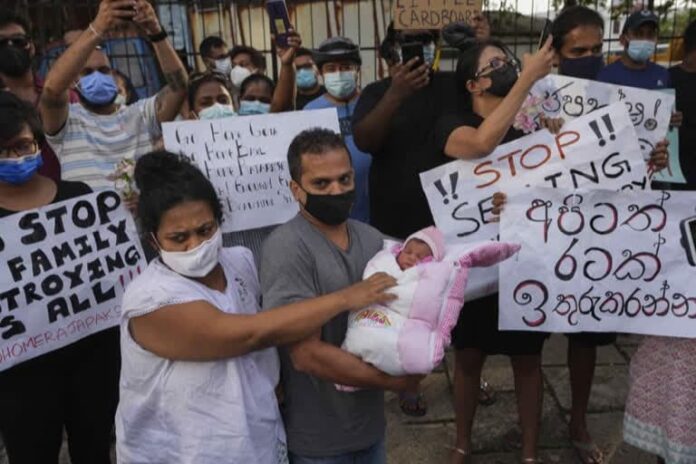| Translate This News In |
|---|
A new Sri Lankan Cabinet is due to be sworn in on Monday as part of the government’s efforts to address the growing public outrage over the island nation’s worst economic crisis. On Sunday night, all 26 ministers resigned in writing. Dinesh Gunawardena, Education Minister and Leader of the House, told reporters that Cabinet Ministers have handed in their resignations to Prime Minister Mahinda Rajapaksa. He gave no explanation for the collective resignation.
On Monday, President Mahinda Rajapaksa stated he would meet with his younger brother, President Gotabaya Rajapaksa. We talked about the country’s position for a long time. There will be solutions to the ongoing fuel and power problem, according to Gunawardena. The island nation has seen considerable public outrage against the administration for mishandling the biggest economic crisis in its history.
The country is said to be in the midst of its worst economic crisis since gaining independence from the United Kingdom in 1948. It is caused in part by a paucity of foreign money, which is used to pay for gasoline imports. People are stuck in long lines for fuel and cooking gas, and they are subjected to power outages that persist for many hours. Independent of political parties, the general populace took to the streets. The government declared a state of emergency in response to the widespread unrest, granting security personnel broad powers to arrest people. Later, a curfew was established to quell public protests, which the public resisted.
The Indian economic aid granted since mid-January has only brought temporary comfort, since the situation on the ground for scarcity of essentials has not improved significantly. People have been calling for President Rajapaksa to resign. There have been calls for an all-party Cabinet, but the main opposition has indicated that they do not wish to share posts in the next Cabinet
.Sri Lanka is currently suffering from its worst economic crisis in its history. For weeks, the public has been inconvenienced by long lines for fuel, cooking gas, and basics, as well as long periods of power outage. Rajapaksa has defended his government’s actions, claiming that the foreign exchange issue was not his fault and that the island’s tourism revenue and inward remittances were declining due to a pandemic.


















